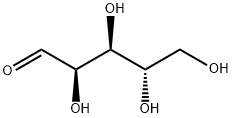L-Arabinose: metabolism in plants and function
Oct 9,2023
General Description
L-Arabinose is an important sugar in plant metabolism, comprising 5-10% of cell wall saccharides. It is found in various cell wall components and signaling molecules in plants. Research focuses on understanding its biosynthesis and incorporation into cellular structures. L-Arabinose maintains cell wall flexibility and prevents excessive cross-linking, allowing for turgor pressure response. It contributes to plant tolerance against abiotic stress like desiccation and salt stress by enhancing rehydration efficiency and moderating cell wall damage. Reduction in L-arabinose leads to increased cell wall brittleness. Further studies, including genetic modification, are needed to fully comprehend L-Arabinose's functions in plant physiology and its potential agricultural and biotechnological applications.
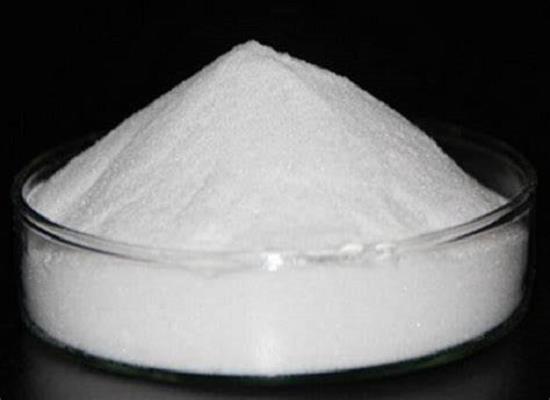
Figure 1. L-Arabinose
Metabolism
L-Arabinose, a plant-specific sugar, plays an important role in plant metabolism. It accounts for approximately 5-10% of cell wall saccharides in plants such as Arabidopsis (Arabidopsis thaliana) and rice (Oryza sativa). L-Arabinose is found in various components of the cell wall, including pectic arabinan, rhamnogalacturonan II, arabinoxylan, arabinogalactan-protein (AGP), and extensin. Additionally, it is present in glycosylated signaling peptides like CLAVATA3 and small glycoconjugates like quercetin 3-O-arabinoside. Recent advances in research have shed light on the generation of L-Arabinose and the metabolism of molecules containing L-Arabinose in plants. Scientists are actively studying the biosynthetic pathways involved in the production of L-Arabinose and its incorporation into different cellular components. Understanding the metabolism of L-Arabinose and L-Arabinose-containing molecules is crucial for comprehending various biological processes in plants. It provides insights into cell wall remodeling, cell-to-cell communication, and the regulation of growth and development. By unraveling the complexities of L-Arabinose metabolism, researchers can gain a deeper understanding of plant physiology and potentially manipulate these processes for agricultural and biotechnological applications. 1
Biological function
Cell wall flexibility
L-arabinose plays a crucial role in maintaining cell wall flexibility. It prevents excessive cross-linking of pectin molecules by Ca2+ ions, allowing the cell walls to maintain their ability to extend and shrink in response to turgor pressure. When treated with α-(1,5)-endoarabinanase, which breaks down α-1,5-linked l-Ara chains, the cell walls become "locked" and lose their flexibility. This phenotype can be reversed by disrupting the Ca2+ interactions between pectin polymers. Reduction in branched pectic arabinan or lower levels of l-Ara have been shown to increase the brittleness of cell walls in various plant tissues. Therefore, L-arabinose is essential for conferring elasticity and flexibility to plant cell walls. 2
Abiotic stress tolerance
L-arabinose plays a significant role in the abiotic stress tolerance of plants, particularly in relation to desiccation and salt stress. In the case of desiccation tolerance, l-Ara-rich polymers contribute to maintaining cell wall flexibility and enhancing rehydration efficiency in resurrection plants. These plants are capable of withstanding extreme dehydration by preventing cell volume reduction, mechanical stress, and plasmolysis. The presence of l-Ara in the cell wall of resurrection plants, such as Myrothamnus flabellifolius, Mohira caffrorum, and Xerophyta viscosa, is associated with pectic arabinan and arabinogalactan proteins (AGPs). The l-Ara content increases during desiccation, suggesting its involvement in moderating excessive cross-linking, preventing irreversible cell wall damage, and acting as a "plasticizer" to enhance flexibility. Similarly, L-arabinose has been implicated in modulating cell wall extensibility under salt stress. In coffee plants, reduced l-Ara content in hemicellulose-enriched fractions under saline conditions leads to decreased extensibility of the cell wall. The decrease in l-Ara is associated with fewer l-Ara-substituted glucuronoarabinoxylans (GAX), which promotes increased cross-links between GAX and cellulose. This results in increased cell wall stiffness and reduced extractability of cell wall components. In maize, accumulation of l-Ara in the cell wall fraction occurs in both salt-sensitive and salt-tolerant cultivars, potentially as a means to accommodate the increase in ferulic acid in GAX. Further studies are required to confirm the relationship between l-Ara and ferulic acid in this context. Overall, L-arabinose plays a crucial role in maintaining cell wall flexibility, enhancing rehydration efficiency, and modulating cell wall extensibility under abiotic stress conditions such as desiccation and salt stress. Further research, including genetic modification of plants, will help to elucidate the specific functions of L-arabinose in abiotic stress tolerance. 3
Reference
1. Kotake T, Yamanashi Y, Imaizumi C, Tsumuraya Y. Metabolism of L-arabinose in plants [published correction appears in J Plant Res. 2018 Feb 21;:]. J Plant Res. 2016;129(5):781-792.
2. Moore JP, Farrant JM, Driouich A. A role for pectin-associated arabinans in maintaining the flexibility of the plant cell wall during water deficit stress. Plant Signal Behav. 2008;3(2):102-104.
3. Mariette A, Kang HS, Heazlewood JL, Persson S, Ebert B, Lampugnani ER. Not Just a Simple Sugar: Arabinose Metabolism and Function in Plants. Plant Cell Physiol. 2021;62(12):1791-1812.
- Related articles
- Related Qustion
- L-Arabinose: A Versatile Sugar with Promising Biotechnological Applications Feb 2, 2024
L-Arabinose is a versatile pentose sugar found in hemicellulose and pectin, with diverse applications, and microbial metabolism offers opportunities for fuel and chemical production.
- What is L-Arabinose? Aug 12, 2021
L-Arabinose is the naturally occurring isomer and constituent of plant polysaccharides.
Gelatin is a biopolymer that is prepared by thermal denaturalization of collagen. It is widely used in food, pharmaceutical, and cosmetic industries.....
Oct 8,2023Biochemical EngineeringMertansine, a maytansine derivative, is always used to prepare antibody-drug conjugates.....
Oct 9,2023APIL-Arabinose
5328-37-0You may like
- L-Arabinose
-
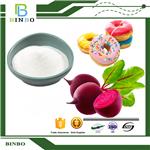
- $0.00 / 1kg
- 2024-04-29
- CAS:5328-37-0
- Min. Order: 1kg
- Purity: 99%
- Supply Ability: 1000 kg
- L-Arabinose
-
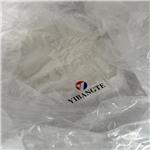
- $0.00 / 1kg
- 2023-08-02
- CAS:5328-37-0
- Min. Order: 1kg
- Purity: 0.99
- Supply Ability: 50000kg
- L-Arabinose
-
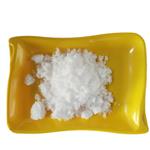
- $0.00 / 25KG
- 2023-06-29
- CAS:5328-37-0
- Min. Order: 1KG
- Purity: 99%
- Supply Ability: 50000KG/month




